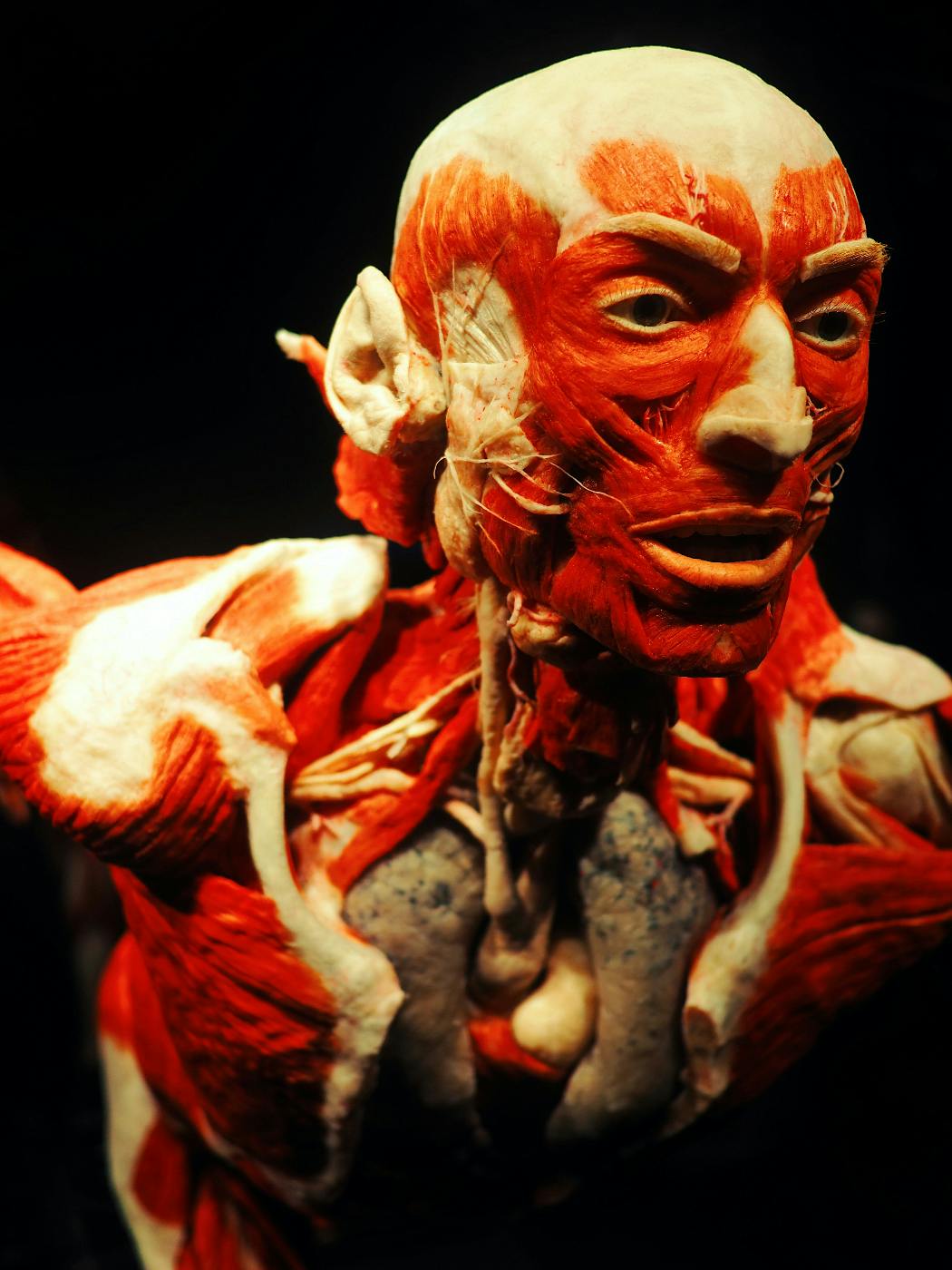
Yet, as we embrace these innovations, there’s a fundamental truth we must never lose sight of: technology is here to serve humanity, not replace it.
Technology should enhance our lives, but it’s our responsibility to ensure it doesn’t dehumanize us.
We stand at the intersection of remarkable technological advancements, with AI and automation revolutionizing industries, enhancing efficiency, and solving complex problems faster than ever before. Yet, as we embrace these innovations, there’s a fundamental truth we must never lose sight of: technology is here to serve humanity, not replace it.
The actual value of technology lies in its ability to enrich the human experience, allowing us to connect, create, and grow in once unimaginable ways. But alongside these opportunities comes the responsibility to ensure that as technology evolves, it does not strip away the very qualities that define us as humans—empathy, creativity, and our capacity for meaningful relationships.
This isn’t a story of technology taking over our lives; it’s about using technology to improve our lives while maintaining a firm grip on what it means to be human. In the race toward automation and AI-driven innovation, the critical question becomes: how do we continue to prioritize the human experience amidst all this progress?
From the start, let’s acknowledge that technology and humanity are not at odds—they can and should coexist harmoniously. But we must approach this balance with care, ensuring our advancements augment our lives without dehumanizing us. The task of every creator, innovator, and user is to keep humanity at the forefront, ensuring that we guide technology rather than letting it guide us.
What Does It Mean to Be Human?
At the core of this conversation is the question: What makes us human? In a world increasingly defined by technological capabilities, it’s easy to forget that our most valuable assets aren’t our efficiency or productivity—they’re our emotional intelligence, ability to form deep connections and capacity for creativity. These are the aspects of ourselves that machines can never truly replicate, no matter how advanced.
Emotional Intelligence and Connection
To be human is to feel deeply. Our emotional intelligence—the ability to understand, interpret, and respond to the emotions of others—is an inherently human trait that sets us apart from machines. This intelligence drives empathy, compassion, and nuanced communication, allowing us to connect with others in meaningful ways.
While AI can be programmed to recognize specific emotional cues or respond to keywords, it lacks the depth of understanding that comes from lived experiences. For example, in healthcare, technology can assist doctors in diagnosing illnesses more accurately and quickly than ever before. However, it’s the human element—the comforting words from a nurse and the supportive touch from a doctor—that truly makes a difference in patient care. No algorithm can replace the power of human empathy in moments of vulnerability.

Storytelling and Creativity
Humans are natural storytellers. From the ancient oral traditions of our ancestors to the digital narratives of today, storytelling is how we connect, share ideas, and make sense of the world. It’s through stories that we express our creativity, pass down knowledge, and foster understanding. While AI can generate text, produce music, or even suggest movie plots, it’s still working within the confines of what it’s been taught. It lacks the intuition, emotional depth, and imaginative spark that allows human creativity to flourish.
Consider education, where technology has introduced incredible learning tools and virtual environments. AI can personalize lessons, assess performance, and automate grading, but the true magic of learning comes from human teachers who inspire, motivate, and connect with their students. It’s that unique relationship—a teacher understanding a student's struggles and offering encouragement—that AI simply cannot replicate.
Irreplaceable Human Qualities
The human experience is not merely a collection of data points or measurable outputs; it is emotional, subjective, and profoundly interconnected. Our ability to read between the lines, sense unspoken tension in a conversation, or be moved by a piece of art makes us human. These qualities—empathy, creativity, storytelling, and connection—are irreplaceable, no matter how advanced AI becomes.
Technology can mimic certain aspects of our intelligence and streamline tasks, but it cannot replicate the intangible essence of humanity. As we integrate AI into more areas of life, our challenge is to remember that it’s our emotional intelligence and creative spirit that makes us irreplaceable. The goal isn’t to compete with machines on efficiency but to leverage technology to amplify the aspects of ourselves that machines cannot touch.

The Promise and Perils of Technology
The Promise of Technology
Technology has undeniably transformed our lives for the better. From AI’s ability to quickly analyze vast amounts of data to automation, making once time-consuming tasks nearly instantaneous, the benefits of technology are hard to overlook. AI and machine learning allow us to solve complex problems, optimize workflows, and unlock insights that would have taken humans years—if not lifetimes—to discover. Whether it's predicting climate patterns, improving healthcare outcomes, or streamlining business operations, technology enhances our ability to act with greater precision, speed, and efficiency.
Consider how AI-driven systems have revolutionized industries. In medicine, AI now assists doctors in diagnosing diseases earlier and more accurately, leading to better patient outcomes. Automation has increased productivity and precision in manufacturing, enabling businesses to produce goods faster and with fewer errors. AI-powered algorithms even help us with our daily routines, whether through personalized recommendations on streaming platforms or navigation apps that save us time by avoiding traffic.
The promise of technology lies in its potential to augment human capabilities and free us from mundane or repetitive tasks, allowing us to focus on higher-order thinking, creativity, and innovation.
The Perils of Over-Reliance on Technology
Yet, with these advancements come significant challenges. As we become more dependent on technology, there is a risk that we might lose touch with some things that make us human. One of the most immediate concerns is the potential loss of jobs as automation and AI continue to take over roles that humans traditionally filled. While new job opportunities may emerge, this shift creates anxiety for many workers who wonder if their skills will be relevant in the future.
Beyond job displacement, over-reliance on technology can depersonalize areas where human touch is critical. For example, chatbots and automated systems are increasingly replacing human interactions in customer service. While these tools can provide quick answers, they often lack the empathy, patience, and understanding that come naturally to human representatives. The same can be said for other fields like healthcare and education, where the human element is essential for offering comfort, support, and personalized care.
Moreover, ethical concerns around AI are becoming more pronounced. AI systems, while powerful, are only as good as the data they are trained on. If these systems are fed biased or incomplete data, the outcomes they generate can be harmful or unjust. This has led to issues with biased algorithms in hiring, law enforcement, and even loan approvals, where technology perpetuates inequalities rather than solving them. The ethical implications of such decisions made by AI underscore the need for human oversight and moral accountability.

Technology’s Impact on the Human Element
Perhaps the most subtle yet profound danger of over-reliance on technology is the potential erosion of the human element in our daily lives. As machines become more capable, there’s a temptation to prioritize efficiency and productivity at the expense of empathy, creativity, and connection. The danger is not that AI will make us less human overnight but that, if left unchecked, it could gradually de-emphasize the traits that define us.
For instance, AI-driven performance metrics in the workplace may reduce employees to numbers, leaving little room for understanding personal struggles or encouraging holistic growth. In healthcare, while AI can assist with diagnostics, patients may interact with systems more than caregivers, leaving them feeling like just another data point.
As we progress, it’s crucial to remember that while technology can be transformative, it must be carefully managed. We must actively decide how and where technology should be used to enhance, rather than replace, the human experience. It’s not enough to marvel at AI's promise; we must remain vigilant about its potential perils, ensuring that our pursuit of progress doesn’t come at the cost of losing touch with what makes us human.
Up Next
As we’ve seen, technology holds immense potential, but it’s only part of the equation. To truly benefit from innovation, we must ensure it complements our humanity, not replaces it. In Part 2, we’ll explore how AI can work alongside us, enhancing human strengths while maintaining ethical responsibility in a tech-driven world.

